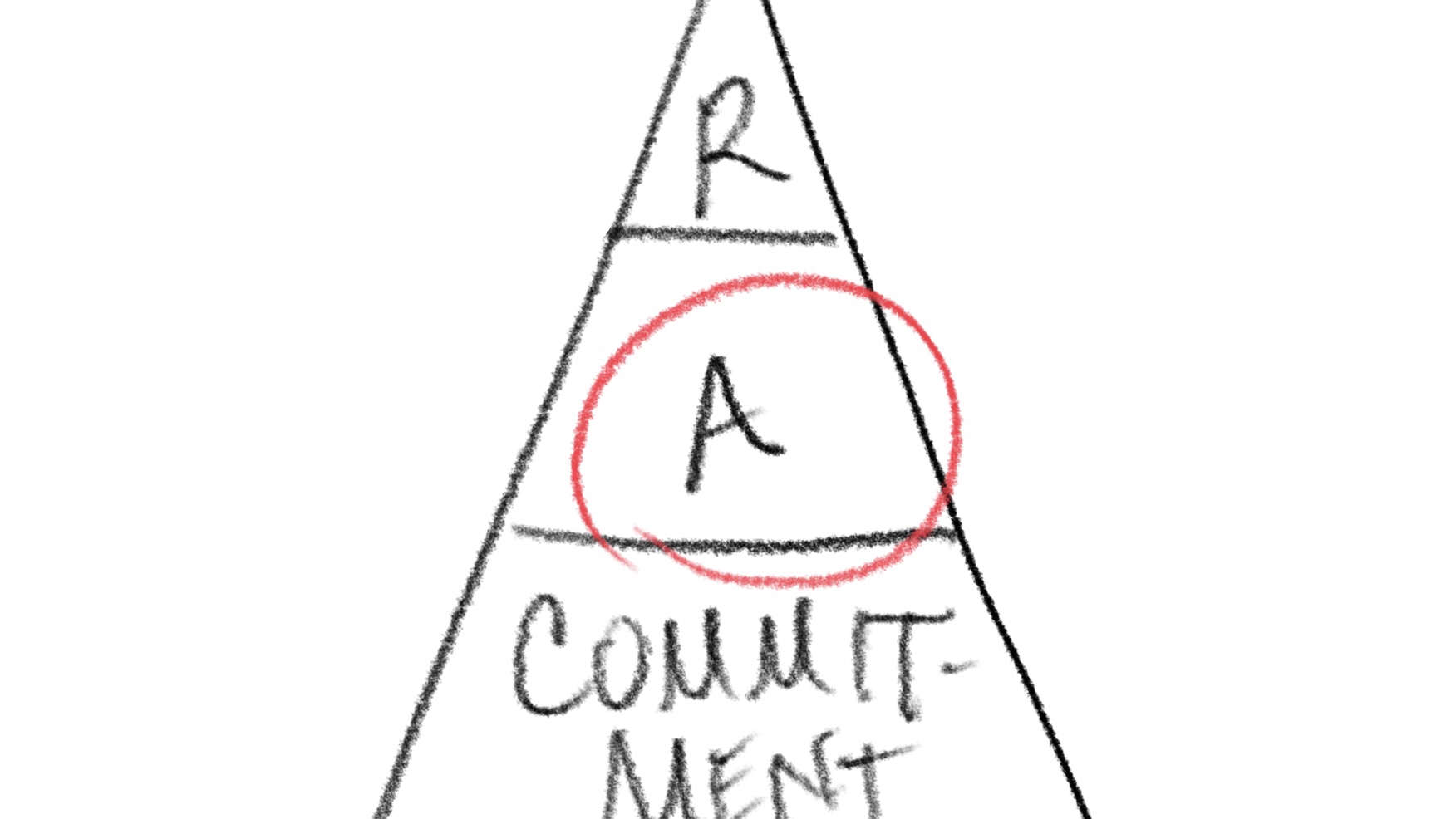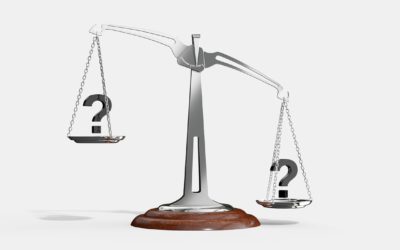The “A” word! No one likes to talk about it. Much less do it. What am I talking about? Accountability.
They say some people fear public speaking more than death. I wonder where holding someone accountable might fall on people’s list of fears? Maybe people would rather give a speech in front of a crowd than have one hard conversation with a colleague at work?
We can get up in our heads a bit about this subject and just start telling everyone to muscle up and ‘practice accountability’. Maybe that works sometimes? But I don’t think this is just about behavior change. It’s got to be a mindset shift. Maybe we fear it because we don’t understand it. Our misconceptions build such a barrier that we don’t even know what we are talking about anymore.
So, let’s make sure we know what we mean when we are talking about Accountability. After working with lots of leaders, teams and organizations, here’s our perspective:
Accountability is about organizational commitments, not individual opinions
Often the first push back we hear about accountability is the old adage, “Who am I to tell someone how to do their job?!?” But it’s not about trying to micromanage or impose your opinion. Accountability is based on the commitments that ‘we’ have made as an organization. When holding someone accountable, all you need to do is point to something that you have committed to and ask, “How’s that going?” You are standing on the foundation of the organization’s deeply held values, strategies, and priorities, not your own whims.
I was working with a client that had a value of ‘candor’. They did not only expect people to just answer questions truthfully (that’s table stakes). They expected people to be forthright and offer unsolicited feedback. So, they had a rule in their meetings: “If you think it, say it. Don’t wait for an invitation.” But, at one particular meeting, a team member was sitting back and doing a lot of thinking and using only cryptic body language to express himself. Lucky for this team, the rules of engagement were actually written on the wall. So, someone (a courageous soul) simply pointed to the wall where they were written and said, “Tom, what’s up? You’ve clearly got stuff on your mind but you haven’t said a word. We need your insight here! What are you thinking?” What followed was an intense debate that uncovered some great solutions. Tom is a strategic thinker, but he would have never been candid without that accountability.
“If you think it, say it. Don’t wait for an invitation.”
Accountability is a responsibility, not an option
Somewhere along the way, I think accountability got tagged as the ‘extra credit’ of our jobs. We can go about our day essentially saying, “Hey, as long as I’m doing my job, I don’t need to worry about someone else. And, if every once in a while I confront something difficult, good for me. How bold of me!” Or some might even fear retribution if they call out someone who outranks them. But that perspective leaves exposures to our employees, customers, stakeholders, etc.
Let’s apply this principle to some very tangible situations. If a nurse doesn’t see accountability as a responsibility, a doctor might amputate the wrong limb. If someone in a bank takes a passive approach to accountability, a family might get approved for a loan they really can’t afford. And the list goes on. We must see this as a part of our job, not extra credit.
We worked with a client whose chief sales officer was starting a new social media marketing team. The team had a ton of energy and the CSO was really enjoying the work. Then someone had the guts to ask, “How have these new initiatives affected your focus on our biggest existing clients?” Uh oh. Awkward silence. Especially since the person asking the question knew nothing about sales or marketing (CFO). She was just a team member who cared about the organization as a whole. The CSO was defensive at first, but then, as she unpacked her workflow, she realized some major risks that she was taking that the company couldn’t afford. After the meeting she pared back on her marketing programs and got her enterprise clients back to where they needed to be. The CFO appreciated this accountability as well, and the impact it had on the bottom line.
Accountability is about protection, not popularity
The previous point can show the broad effects of avoiding accountability. Now let’s bring the focus to the individual. That might help us see some missed opportunities. Yes, it’s hard to measure the global impact sometimes, but what about our best friend at work? It’s often in our closest relationships where we miss the mark. We are trying to maintain good rapport, but in the process, we are doing a disservice to our closest friends, co-workers, and constituents.
This reality hit me right between the eyes when I was at work the other day. I was with a large group of clients and partnering with a close friend and consultant. We were facilitating a workshop on the principles of organizational health. He came up to me and boldly asked for accountability, saying, “Sometimes I have a tendency to talk too much and go on and on. Will you catch me on this and let me know if this happens?” I was impressed by his request, but distracted too. I knew this about him and had never told him (even though he’s a close friend). I didn’t want to hurt his feelings, right?!?! But I said ‘sure’ reluctantly.
Then I started to think of this a bit differently. I thought, “I’m not hurting him if I give him hard feedback. I’m hurting him if I don’t give him feedback. I’m not protecting his blind spots.” And lo and behold, within the first hour he went off on some talking point and started beating a dead horse. Sometimes extroverts like to repeat what has already been said to process out loud or get the last word in, but it’s not always productive (forgive my introverted bias coming out). Anyway, I pulled him aside at the break and told him what I observed. He received it well as I tried to deliver what Pat calls ‘the kind truth’. We were both better for it and the day moved much more smoothly from then on.
We can build off experiences like this as we take some risks in the area of accountability. Accountability is often viewed inherently as a grueling, negative experience that stirs up a mess and erodes working relationships. But, we have found quite the opposite. When done well, good accountability builds relationships and higher levels of trust.
A special note to leaders:
Often, your teams will use you as a ‘sounding board’ for all the stuff they should be sharing with their peers. Don’t let them triangulate and position you in between their issues. Force the hard conversations and model them for others. You may not be the most popular person in the moment, but it’s not a popularity contest. Our organizations exist to fulfill great purposes. And we must provide real-time, peer-to-peer accountability to keep us on track. Our co-workers benefit. Our customers benefit. And we are stronger and better for the experience.





0 Comments